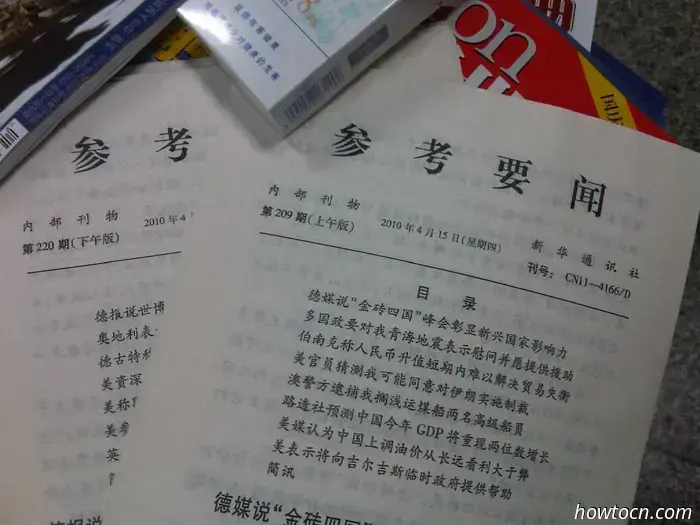
After dinner, Alice, a Chinese immigrant residing in Australia, settled on the couch and opened the Xiaohongshu app on her phone. Since relocating to Melbourne from Adelaide last year, Xiaohongshu had become Alice’s primary source for discovering trending restaurants and cafes, and it was about to evolve into a resource for pet care after she adopted a puppy through the app. While browsing videos and images, she was taken aback upon noticing a familiar face.
The image featured a young Chinese couple enjoying a day in a park in Adelaide, captioned with their six-month anniversary celebration. Alice immediately recognized the man in the picture as the boyfriend of a friend she had messaged earlier that day. She felt repulsed by the revelation of his cheating but was intrigued by the effectiveness of Xiaohongshu’s algorithm.
Alice didn’t follow her friend or her boyfriend on Xiaohongshu, yet even being 729 kilometers away from Adelaide, the powerful geographical and personalized algorithm of Xiaohongshu showcased that photo to her.
Background and Expansion
Established in 2013 in Shanghai by Stanford alum Charlwin Mao and Miranda Qu, Xiaohongshu 小红书 – also known as ‘Red’ or ‘The Little Red Book’ – has rapidly become the fastest-growing social platform in China by 2023. Users share stories and images from their everyday life, exchange practical tips, and post reviews ranging from lipsticks to home decor. Resembling Instagram, Xiaohongshu prioritizes content with photos and videos and organizes posts into three main feeds: ‘Follow’, where users view posts from those they follow; ‘Explore’, a section for algorithm-personalized content based on selected interests, from manicures to career advice; and ‘Nearby’, which curates content generated in the user’s geographical vicinity.
Initially, Xiaohongshu was an e-commerce platform aimed at providing overseas travel and shopping information for Chinese tourists abroad, offering user-generated recommendations on dining, shopping, accommodations, and purchases abroad. This was during a period when the trend of daigou 代购, where shoppers procured desirable goods overseas for consumers in China, gained global attention. As daigou leveraged social media for product promotion, it contributed to China’s first transnational e-commerce surge, with the sector recording 2.7 trillion RMB ($573 billion AUD) in 2014. The success of this e-commerce boom prompted then-Premier Li Keqiang to introduce new economic policies to foster cross-border e-commerce, which encouraged Xiaohongshu to launch its online store in 2014 selling internationally sourced goods recommended by users.
As the app saw increasing traffic and a growing variety of content, Xiaohongshu’s e-commerce feature expanded to include products available in mainland China. The app merges user-generated content with e-commerce by allowing posts to include shopping links to products. Users describe Xiaohongshu's e-commerce model as ‘planting seeds’ 种草: the reviews create a desire for the items. This sets the platform apart from traditional e-commerce sites like Taobao and newer options like TEMU, which follow an Amazon-like structure that emphasizes product search over customer reviews.
Xiaohongshu specifically encourages users to create anecdotal, visual, and first-person narratives directed at other users. These elements constitute what marketing experts refer to as the Xiaohongshu format 小红书文案, featuring concise, engaging headlines, compelling first-person stories, practical tips, and addressing users as ‘families’ 家人们, ‘sisters’ 姐妹们, ‘fairies’ 仙女们, and ‘little sweet potatoes’ 红薯们 (a playful reference related to the name of the red book, hongshu 红书). With advancements in artificial intelligence, AI tools designed to assist users and marketers in crafting posts that align with Xiaohongshu’s algorithm have emerged.
For instance, to produce a negative review for a restaurant known for overpriced meals and subpar service, a Xiaohongshu-optimized AI might generate a post similar to this:
Title: 💔 NEVER EVER eat at this restaurant!
Today I want to share my experience at a questionable restaurant: xxx restaurant. First off, the prices were quite steep, the food was merely average, and definitely not worth it. 🤨 Secondly, the service was poor – the waiter appeared impatient while taking our order, which made us feel uncomfortable. 😒 Lastly, the dining atmosphere was unappealing and killed our appetite. In conclusion, I strongly advise against dining at this establishment. #NotRecommend #BadReview #HighPrice
According to a senior director at Xiaohongshu, the philosophy behind promoting this anecdotal style of reviews is to motivate users to ‘genuinely share’ 真诚分享 their experiences: ‘When we initially created the platform for offering reviews on transnational shopping, we aimed to present authentic opinions from real individuals regarding real products, which

-Science-Fiction-The-China-Story.png)
In April 2024, Nymphia Wind, a drag queen from Taiwan, made history as the first East Asian winner of RuPaul's Drag Race. Clips of her in a shimmering golden outfit gained widespread attention online, bringing Taiwan into the global media spotlight and establishing her as a kind of queer representative for Taiwanese authenticity to the world. As she humorously noted, this role can be compared to a wai jiao guan 外焦官 – ‘external banana official’, a play on words with the term for 'ambassador' 外交官.

I was one of the organizers of the 2014 pro-democracy Umbrella Movement and received a sixteen-month prison sentence for encouraging people to participate in a seventy-nine-day occupation of major roads in Hong Kong. Life in prison was challenging. The food was poor, and the summer heat was unbearable while winters were excessively cold. There were numerous regulations governing prison life. Sharing food, books, or even keeping an orange overnight could lead to punishment through solitary confinement, where one would have no access to books, snacks, radio, or television. Inmates were stripped not only of their freedom but also of their dignity, frequently scolded by guards and monitored naked by surveillance cameras.

A common saying regarding communist regimes is that their leaders tend to overlook the intelligence provided to them. Martin Dimitrov explores the different internal reference materials under Xi and asserts their ongoing importance. In China, similar to other communist regimes, there are two categories of media: one that is publicly available and another that is restricted, accessible solely to regime insiders with the necessary clearances. This second category, referred to as neibu 内部 or 'internal circulation,' has not been as thoroughly examined by scholars.

In April 2024, the Taiwan Constitutional Court conducted a hearing regarding the potential violation of constitutional human rights guarantees by the death penalty. On September 20, it decided to maintain the death penalty, introducing some new safeguards for its application. Although a coalition of abolitionist non-governmental organizations (NGOs) and research institutions, spearheaded by the Taiwan Alliance to End the Death Penalty (TAEDP), has spent twenty years campaigning for its abolition, numerous polls have consistently shown significant public resistance to eliminating the death penalty.

China's social credit initiatives originated twenty-five years ago, as officials and companies aimed to address issues such as the prevalence of counterfeit goods, triangular debt situations—where A lends to B, B lends to C, and C lends back to A, resulting in a stalemate of problematic debts that jeopardize financial stability—and a general lack of respect for the nation's laws and regulations. As a result, the central government and multiple ministries dedicated many years to creating data-sharing frameworks among typically segmented governmental bodies, along with establishing blacklists to penalize substantial offenders and incentives to encourage 'trustworthy' conduct.

Thank you for engaging with the China Story. The moment has arrived for us to part ways. The website will cease updates starting February 2025.
As US TikTok users seek solace in an alternative Chinese app named Xiaohongshu, we explore the app's background, its distinctive features, and its growing global impact.